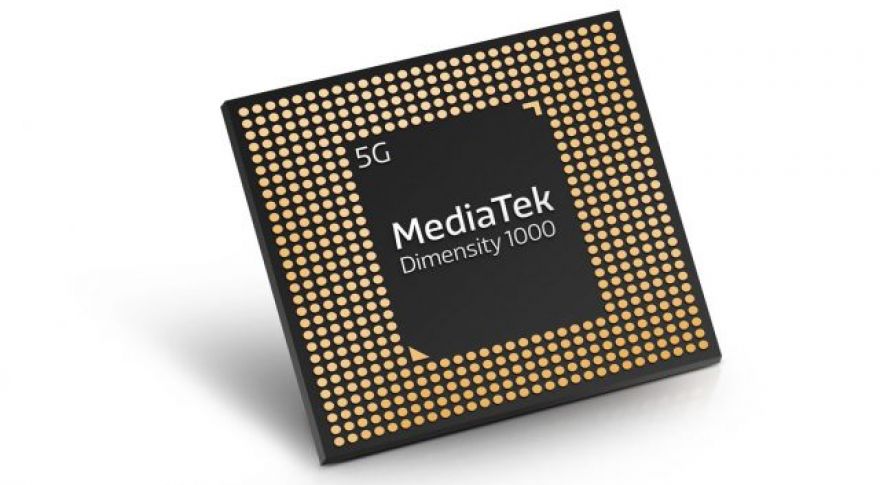
MediaTek Announces Dimensity 1000 ARM Chip With Integrated 5G Modem
MediaTek has a reputation for making budget ARM chips for mid-range phones, but it’s hoping to become a part of flagship phones by getting out in front with 5G. The company has announced its new Dimensity 1000 system-on-a-chip (SoC) with the . However, it won’t work on some of the primary bands operating in the US.
The company’s previous high-end chip was the Helio G90, which had two high-power CPU cores and six low-power cores. That put it on a different, more modest level than the chips from Qualcomm, HiSilicon, and Samsung. The Dimensity 1000 doesn’t just bring new branding; it’s also sporting four Cortex A77 CPU cores and four Cortex A55 CPU cores, all built on a 7nm process node.
The Dimensity 1000 will support QHD+ resolutions with refresh rates up to 90Hz. At 1080p, the Dimensity can go as high as 120Hz. It also supports camera resolutions as high as 80MP or a 32+16MP dual arrangement with 4k60 video. That’s all in the same ballpark as the 800-series Snapdragon chips from Qualcomm.
MediaTek’s biggest selling point here is the integrated 5G modem. All the Qualcomm-powered 5G phones we have use a separate 5G modem that is linked to the Snapdragon 855. We expect Qualcomm to announce a new chip in the coming months with an integrated 5G modem, but MediaTek has the spotlight for the moment.
A 5G millimeter wave cell site on a light pole in Minneapolis.
The Dimensity 1000 modem has a maximum theoretical download speed of 4,800Mbps, but that’s on “sub-6” 5G networks. Those networks, operating below 6GHz, are still very rare in the US. Most carriers have started their 5G rollouts in higher millimeter wave spectrum, which has higher throughput and less coverage. Sprint is the only US carrier with a large swath of sub-6 spectrum suitable for 5G, so millimeter wave will continue being an important part of the US 5G landscape into the future. The Dimensity 1000 won’t support that spectrum at all.
MediaTek says the first devices with the Dimensity 1000 should start appearing in Asian markets in early 2020. The US should see some Dimensity 1000 devices by later next year. At that point, there should be some sub-6 5G as carriers work to share or refarm lower spectrum to fill in the gaps left by millimeter-wave deployments.
Now read: